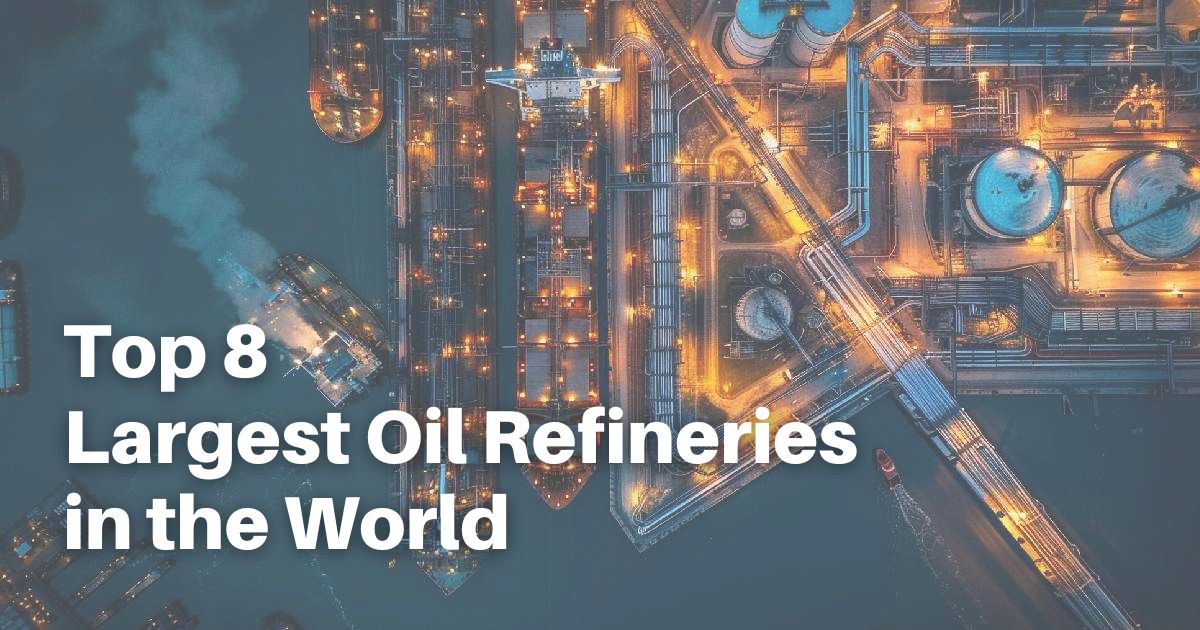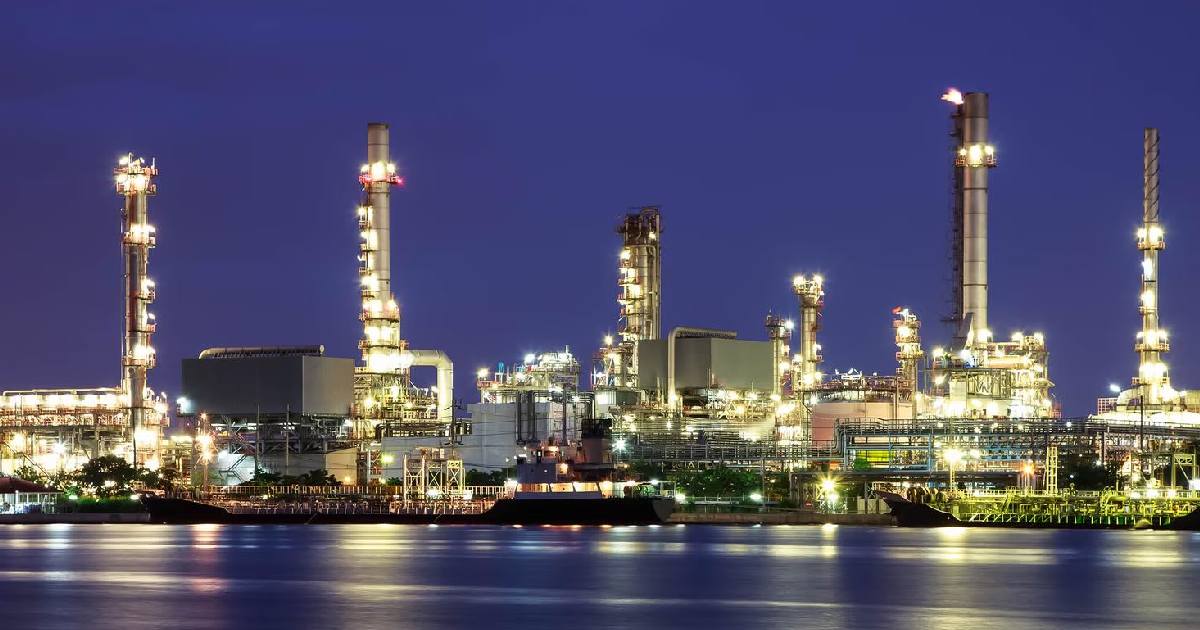
Modern energy needs shape the world economy, and oil refineries play a huge part in making essential products like gasoline, diesel, and liquefied petroleum gas. There is more to these refineries’ importance than their size; they are key links in the energy supply chain that affect everything from local businesses to oil prices around the world. The article talks about some of the world’s biggest oil refineries, explaining how they work and what part they play in the world’s energy situation.
8. Galveston Bay Refinery – Marathon Petroleum’s Texan Titan
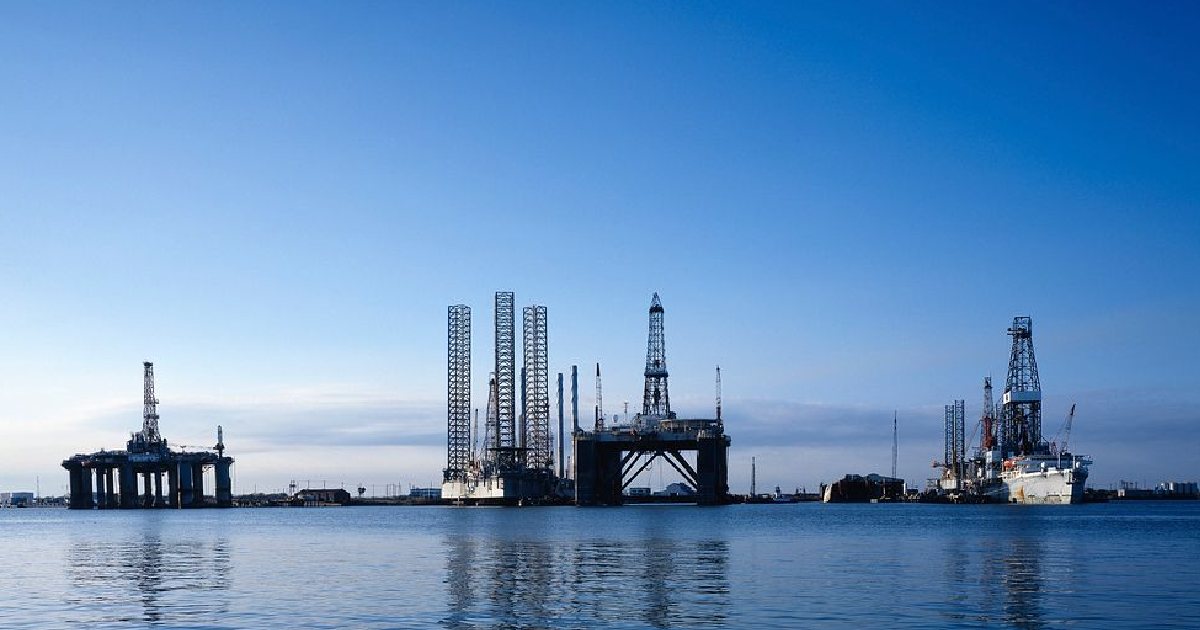
- Location – Texas City, Texas, United States
- Owner/Operator – Marathon Petroleum
- Barrels per Day – 631,000
Houston, Texas’s Galveston Bay Refinery is run by Marathon Petroleum and can process 631,000 barrels of oil every day. It has some of the most modern technologies in the United States for turning crude oil into a wide range of petroleum products, such as heating oil. The Gulf Coast is a key area for America’s energy industry, and this pipeline is an important part of the region’s energy infrastructure.
The refinery’s activities show that Marathon Petroleum cares about safety and the environment. With many different programs, the Galveston Bay Refinery has improved its safety and environmental performance. This means lowering emissions and flaring, making energy use more efficient, and putting money into community ties. For the plant to not only meet government rules, but also help the local community and the industry’s environmental goals as a whole, these steps are necessary.
7. Dangote Refinery: Africa’s Game-Changer

- Location – Lekki, Nigeria
- Owner/Operator – Dangote Group
- Barrels per Day – 650,000
An estimated 650,000 barrels per day will make the Dangote Refinery in Lekki, Nigeria, one of the biggest oil refineries in the world. The ambitious project is part of Aliko Dangote’s plan to make Nigeria less reliant on foreign refined oil products and to help the region’s economy grow. Once it’s up and running, it will be the largest oil refinery in Africa, which will completely change the energy situation on the continent.
When different types of crude oil are processed at the refinery, they are turned into gasoline, diesel, aviation fuel, and liquefied petroleum gas, all of which are needed for domestic use and markets in the area. In addition to creating jobs, the Dangote Refinery is expected to boost many related businesses, leading to technological progress in Nigeria and beyond. Beyond its economic gains, this refinery is very important for West Africa’s energy security.
6. Onsan Refinery – A Testament to Technological Prowess
- Location – Ulsan, South Korea
- Owner/Operator – S Oil (Saudi Aramco and Hanjin Group)
- Capacity: 33,5 million tons/annum
- Barrels per Day – 669,000
As a major player in the Asian refining industry, S-Oil’s Onsan Refinery in Ulsan, South Korea, handles 669,000 barrels of crude oil every day. Large and complicated, this plant can process different types of crude oil and make many valuable refined products. An important part of the Onsan Refinery’s working efficiency is its residue upgrading complex, which helps it make the most of heavier crudes to make lighter, more valuable refined products.
Modernizations at the refinery, such as the addition of new equipment to make cleaner fuels and lower the sulfur content in diesel and gasoline, show its dedication to new ideas and environmental responsibility. For the Onsan Refinery to stay competitive in the fast-changing global oil market, S-Oil, which is backed by the Saudi Arabian oil giant Aramco, has made big investments. To meet global environmental standards and increase the refinery’s output, these improvements lower greenhouse gas pollution and other pollutants.
5. Yeosu Refinery – The Pinnacle of Korean Precision
- Location – Yeosu, South Korea
- Owner/Operator – GS-Caltex (50% Chevron/ 50% GS Holdings)
- Capacity: 40 million tons/annum
- Barrels per Day – 730,000
South Korea’s economy depends on the Yeosu Refinery, which is run by GS Caltex and processes about 730,000 barrels of oil every day. Furthermore, this huge complex is an important part of the country’s energy system and also makes a big difference in the global oil market. South Korea’s advanced high-tech refining skills are shown by this facility’s high level of integration, which lets it make a wide range of petrochemical goods and refined oil.
In contrast to other refineries, the Yeosu Refinery is dedicated to protecting the environment and working on new ideas. Using cutting-edge technology to make its processes more efficient and reduce its impact on the environment is something it does. Situated on the southern coast of the Korean Peninsula, the refinery’s products can be easily shipped to foreign markets, which makes it an important player in the world’s energy trade. The refinery stays at the top of its field by continuing to spend in modernizing its buildings to meet high safety standards and environmental requirements.
4. Ruwais Refinery – Shaping the Future of the UAE
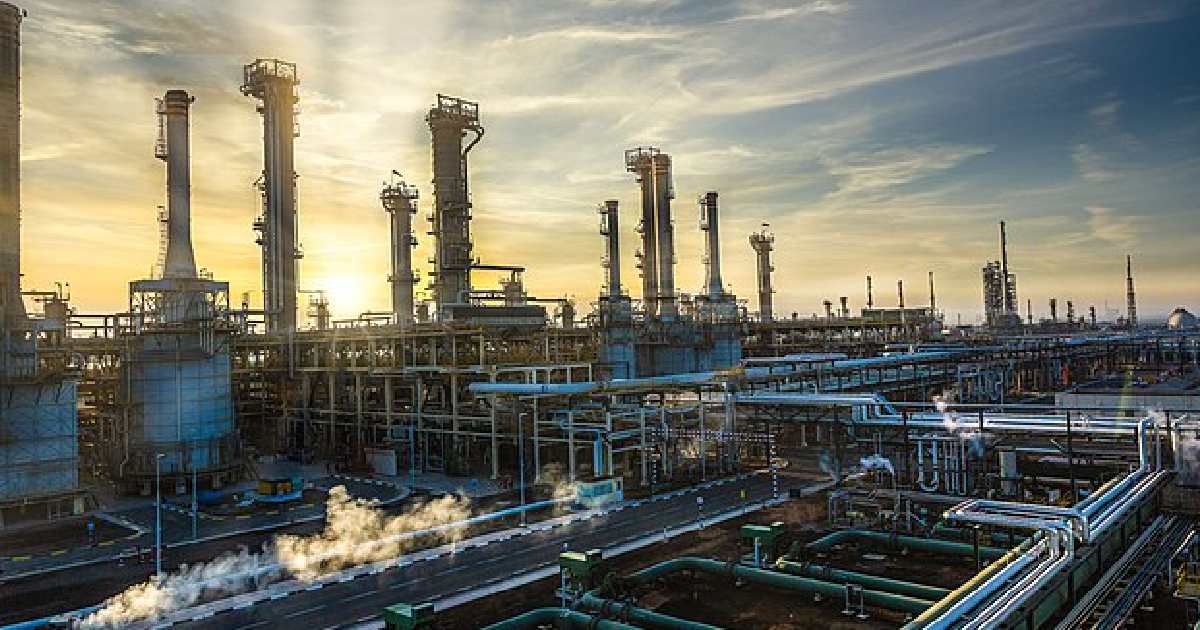
- Location – Ruwais, UAE
- Owner/Operator – Abu Dhabi National Oil Company (ADNOC)
- Barrels per Day – 817,000
With a capacity of 817,000 barrels per day, the Abu Dhabi National Oil Company (ADNOC) runs the Ruwais Refinery, which is an important part of Oman’s oil business. As part of the UAE’s plan to move away from crude exports and toward more diversified economic growth, this refinery in Ruwais is meant to get the most value out of each barrel of oil. The facility’s strategic importance is increased by the fact that it is close to abundant oil sources and major shipping lanes. Multiple high-value refined products are important for both domestic and foreign markets.
ADNOC’s Ruwais Refinery is having a major expansion that will make it more complex and incorporate petrochemical operations. As part of a larger plan to make Ruwais an industrial hub that not only refines crude oil but also makes petrochemicals, this new growth will help create high-skilled jobs and strengthen the UAE’s economy. As the refinery grows, it will use more modern refining technologies that are better for the environment and compliant with global sustainability standards. The UAE’s dedication to steering the energy industry toward a more safe and varied future is reflected in this project.
3. Ulsan Refinery – South Korea’s Industrial Powerhouse
- Location – Ulsan, South Korea
- Owner/Operator – SK Energy
- Capacity: 40.2 million tons/annum
- Barrels per Day – 850,000
With an amazing 850,000 barrels per day capacity, South Korea’s Ulsan Refinery, which is run by SK Energy, is a hub in the global processing industry. In the industrial city of Ulsan, South Korea, there is the country’s biggest oil plant, which is meant to meet the energy needs of both South Korea and other countries. A lot of different products, from gasoline to propylene, can be made at this refinery because it takes a thorough approach to refining materials. With its wide range of uses, state-of-the-art technology, and strict environmental standards, it leads the business.
Beyond being a refinery, the Ulsan complex is a huge industrial environment that includes petrochemical plants. It is an important part of South Korea’s export-based economy. Its competitiveness and efficiency in the Asian market are increased by its advanced crude oil distillation unit and integration with chemical production, which underlines its strategic importance. A model of responsible industrial operation, the refinery is working hard to cut down on greenhouse gas pollution and investing in cleaner technologies to show that it cares about the environment.
2. Paraguana Refinery Complex – Venezuela’s Beating Heart
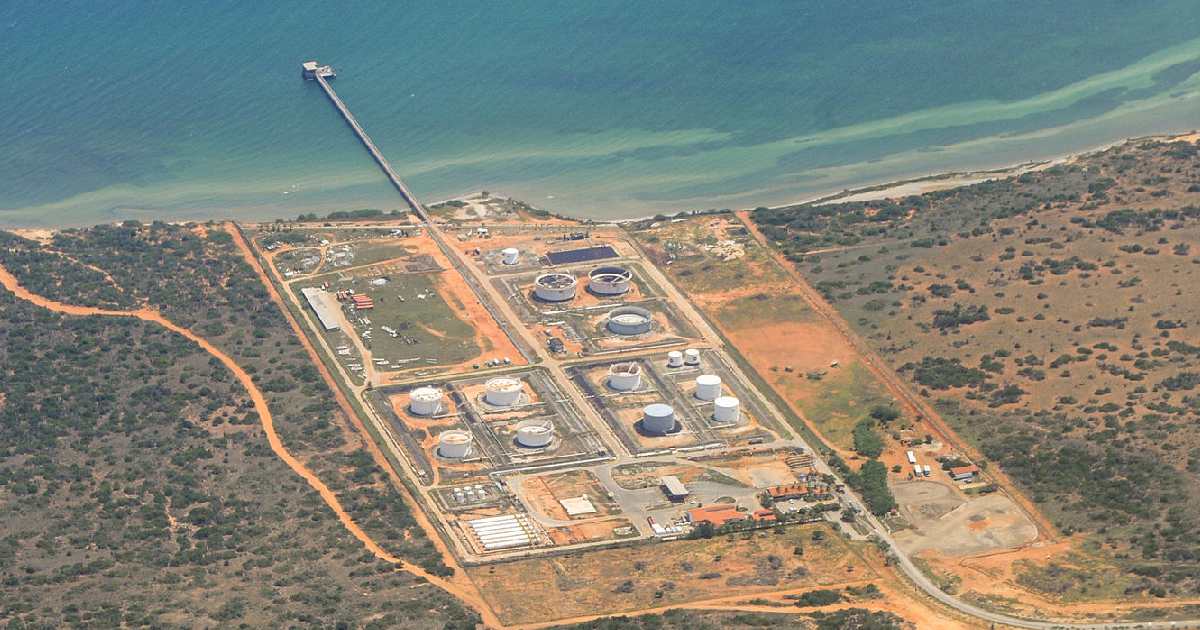
- Location – Paraguaná, Falcón, Venezuela
- Owner/Operator – Petróleos de Venezuela, S.A. (PDVSA)
- Barrels per Day – 940,000
Falcon, Venezuela’s Paraguana Refinery Complex is one of the most important assets of PDVSA, the country’s state oil company. The processing capacity of this complex is 940,000 barrels per day, making it one of the biggest in the world. Included are the Amuay and Cardon refineries, which are very important to Venezuela’s ability to process oil and are used for both internal purposes and oil exports to other countries. Although it has problems like old facilities and limited funds, the complex is still an important part of the world’s oil production.
Additionally, this refinery complex is very important for making processed oil products, and its operation has a big effect on the local and national economies. As a strategic point of reference, its position near the Caribbean Sea makes it easier to export oil products. Upgrading the Paraguana Complex’s buildings to make them more efficient and less harmful to the environment has been attempted, but progress has been slowed by economic problems. Beyond its economic impact, the refinery also has a geopolitical impact, changing oil prices and market dynamics in the Caribbean and beyond.
1. Jamnagar Refinery – The Colossus of Reliance Industries
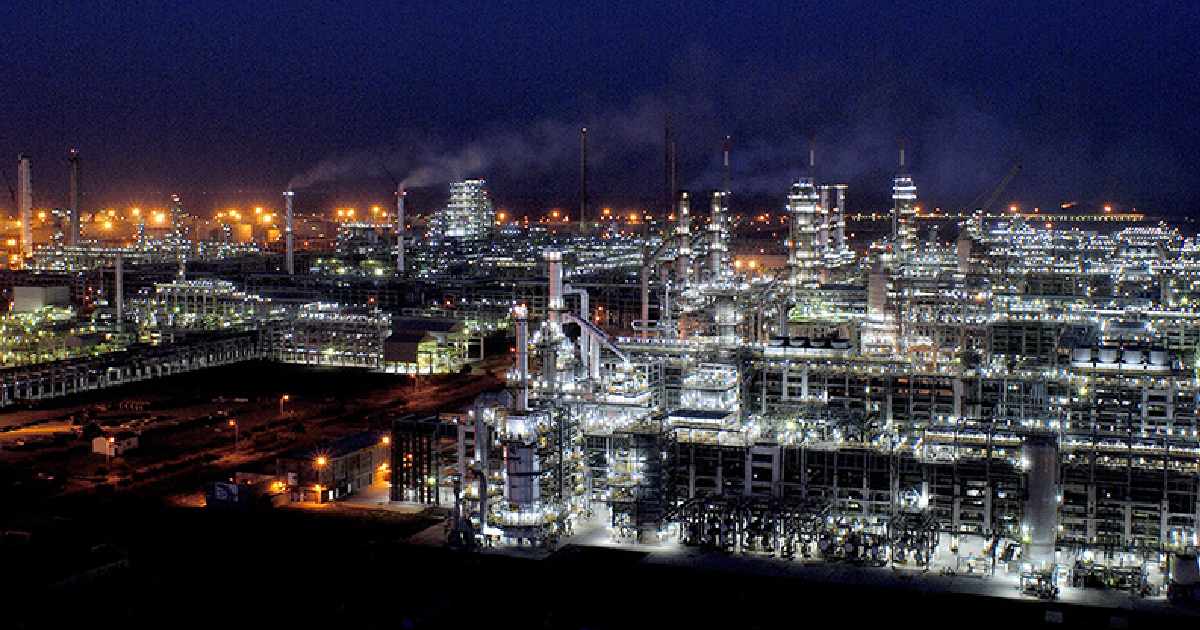
- Location – Jamnagar, Gujarat, India
- Owner/Operator – Reliance Industries Limited
- Barrels per Day – 1,240,000
The Reliance Industries-run Jamnagar Refinery in Gujarat, India, is a model of industrial success. With the amazing ability to handle 1.24 million barrels of crude oil every day, it is the world’s largest refinery. Not only does this facility meet India’s large desire for oil products, but it also sends them to international markets, making it an important part of the current state of global energy. With some of the most cutting-edge technologies in the oil refining business, this private-sector crude oil refinery in Jamnagar can make less fuel oil, which is less profitable than other products.
Dual refinery units are part of the refinery’s huge infrastructure. This lets it turn a wide range of crude oils, even heavier and dirtier ones, into well-paying products. A complex’s high Nelson complexity index shows how well it can turn crude oil into refined goods. Beyond what it can do for business, the Jamnagar refinery is also a model of sustainability, focused on lowering greenhouse gas emissions and other negative effects on the environment. Although it’s an industrial hub, it’s also a key part of the regional economy, supporting many other businesses and creating thousands of jobs.
Conclusion
It’s not just factories that these refineries, including the Port Arthur Refinery that wasn’t named, are; they’re also engines of progress transforming crude oil into useful products that power factories, heat homes, and keep cars running. Innovating ways to reduce their effect on the environment while meeting the world’s never-ending energy needs, these giants are also at the forefront of the move toward sustainable energy.
Therefore, the world’s largest refineries are more than just places where energy is changed. Economic landscapes, world markets, and technological progress are all greatly affected by them. They are responsible for maintaining important resources and must meet present needs while also coming up with new ideas for a sustainable future. The refineries in South Korea’s busy ports and Texas’s huge plains both serve as reminders of how nature is connected and changes over time.
Frequently Asked Questions (FAQs)
Where is the biggest oil refinery in the world?
The biggest oil refinery in the world is located in Jamnagar, Gujarat, India. This massive facility, known as the Jamnagar Refinery, is operated by Reliance Industries and boasts an astonishing capacity of about 1,240,000 barrels per day. It plays a crucial role in meeting both domestic and international energy demands.
What are the top oil refinery companies in the world?
Some of the top oil refinery companies in the world include Saudi Aramco, ExxonMobil, Royal Dutch Shell, and BP. These companies operate some of the largest and most technologically advanced refineries globally, playing significant roles in oil processing and distribution across various continents.
What US city has the most oil refineries?
Houston, Texas, is the US city with the most oil refineries. Known as a vital hub for the oil and gas industry, Houston hosts several major refineries that contribute significantly to both the local and national economy. This city’s strategic location and infrastructure make it ideal for refinery operations.
How many oil refineries are in the US?
The United States is home to approximately 129 operable petroleum refineries. This extensive network of refineries plays a pivotal role in transforming crude oil into valuable petroleum products such as gasoline, diesel, and jet fuel, which are essential for various forms of transportation and industries.
Who owned 90% of all oil refineries in the US?
In the early 20th century, John D. Rockefeller’s Standard Oil Company owned about 90% of all oil refineries in the US. This near-monopoly was significant during the era when Standard Oil dominated the oil industry before it was broken up in 1911 due to antitrust regulations.

